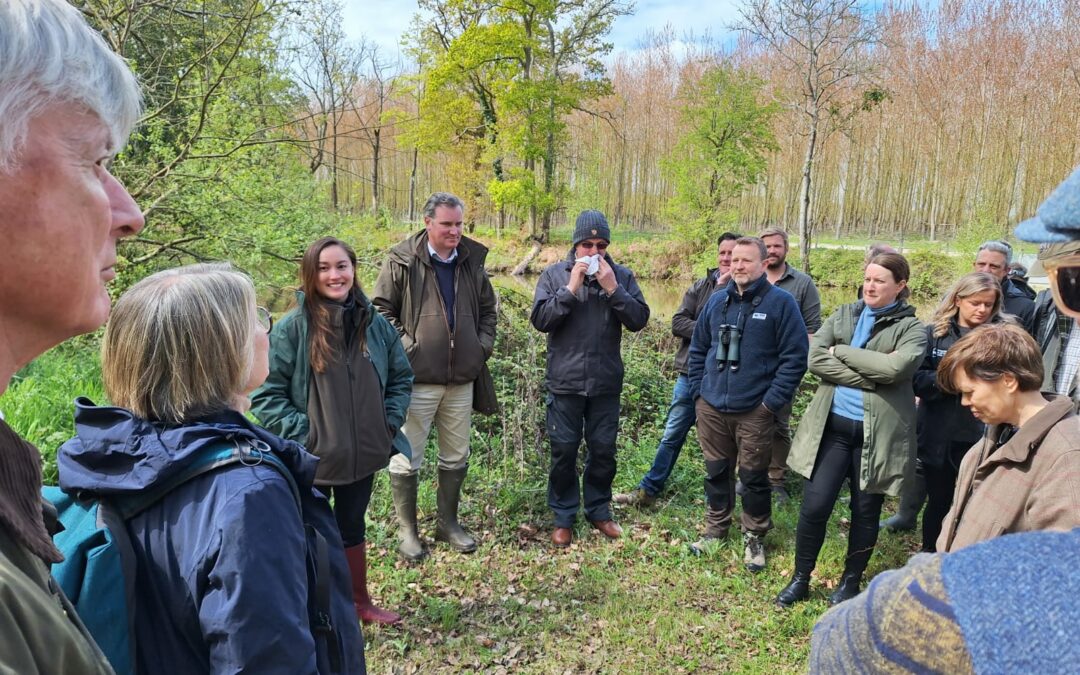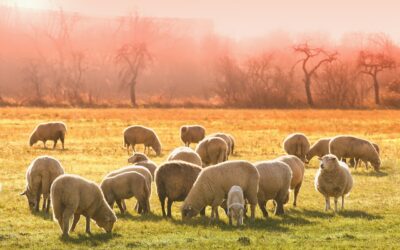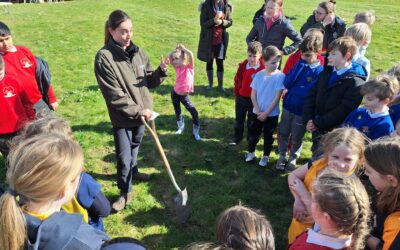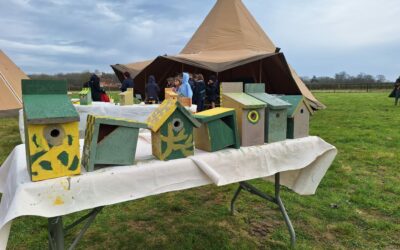It was a delight to host the Hampshire & Isle of Wight Wildlife Trust’s annual rewilding network event here at Ewhurst Park this month.
The day started with welcoming our guests. We gave an overview of what we’re doing here at Ewhurst Park, then the Wildlife Trust’s chief executive Debbie Tann and her brilliant team spoke about the current state of nature in the UK. There followed a tour of the estate to see how our beavers and Iron Age pigs are shaping the landscape.
We were then treated to a ‘wild feast’ surrounded by bluebells and birdsong in one of Ewhurst’s ancient semi-natural woodlands. Delicious and colourful food was served up by our sister restaurant The Good Plot, with everything on the menu having been foraged or grown at Ewhurst Park.
The overarching theme of the rewilding network is how food production and nature restoration can happen in tandem. Our visitors were mostly fellow landowners, from estates ranging in size, with some who have been rewilding for a long time and others who are at the start of their journey. The day was a fantastic opportunity to connect with people who are doing fantastic things for nature.
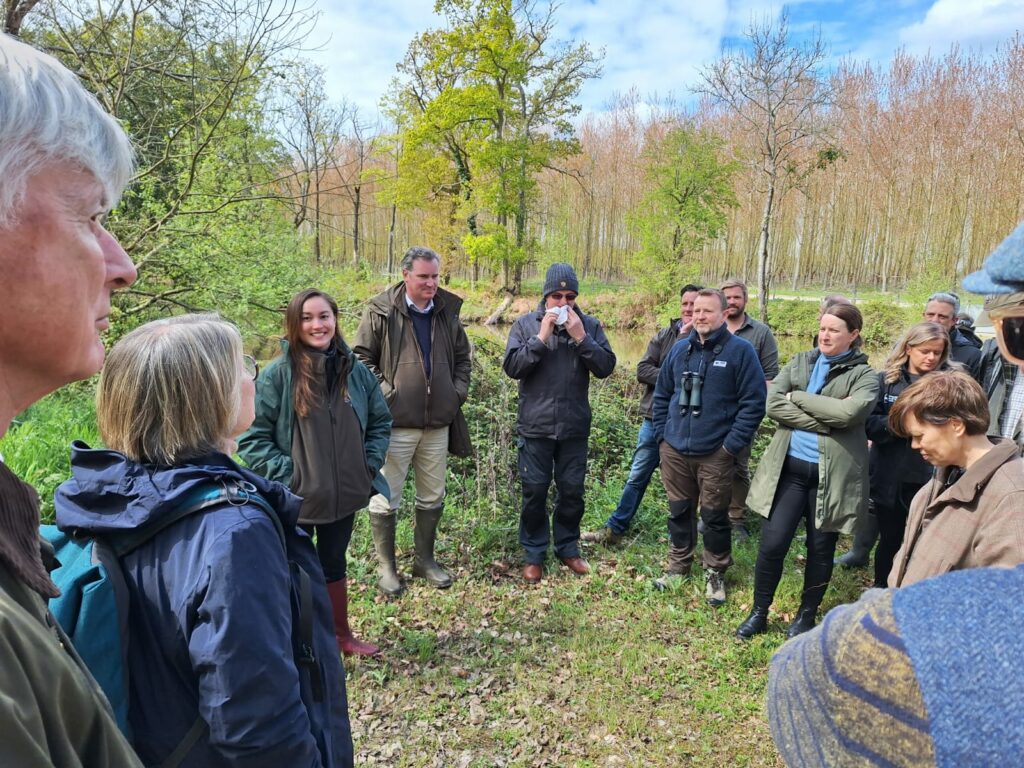
Hampshire & Isle of Wight Wildlife Trust’s 2024 rewilding network event was held at Ewhurst.
For me, it was wonderful to see both familiar faces – including experts who’ve helped us on our journey so far – and new faces. I felt really humbled and privileged to be able to open up Ewhurst Park to let everyone see what we’ve been doing and the changes that have taken place. Since we started here in 2020, we’ve grown from a team of three to a team of 16, and we’ve achieved such a lot.
With rewilding work, I have learned it is vital to be patient and observant so we can discover what the land wants to do. Part of regeneration is about giving nature space and time to show you what is there beneath the decades of human interference. When we sit back and watch, we learn which species belong and want to thrive.
At the same time, gentle and sympathetic interventions can be highly beneficial. A good example of this has been our species introduction. Our beavers – released last year into an enclosure – have been busy building dams which have had a significant impact on the surrounding environment: water quality has improved and a range of plant, insect and bird species have taken up residence. In addition, our free-roaming livestock are also benefiting the land, with their manure helping to nourish the soil and pollinate the land. These interventions have changed the landscape for the better and encouraged biodiversity.
Another example of a sympathetic intervention involves widening the rides through the woodlands so more sunlight can reach the ground, which will promote the growth of ground flora.
A third example has been our struggle to decide how best to deal with ash dieback, the disease that is killing ash trees across Europe. We’re not alone in trying to strategise how to best deal with this problem. We initially considered a mass felling of every infected tree. But rather than rush into it, we’ve been monitoring each tree and noticing how some are developing resilience. We’re now hopeful that some of the trees can be saved: our patience is paying dividends.

We gathered for a ‘wild feast’ in the open air in our woodlands.
As mentioned above, restoring nature is only half of the equation. The other half is to establish and develop nature-friendly forms of food production. We enjoyed a great example of this at our networking event. At lunch time, we gathered at a long table set up in one of our ancient semi-natural woodlands to enjoy a ‘wild feast’. As we sat together and shared our experiences, I could see another of our goals here at Ewhurst Park coming to fruition, which is to create opportunities to bring people together: for fellowship and education and to grow community.
We want to encourage everyone to play their part in the rewilding journey. Whether you have access to an estate, garden or an allotment, the more we can play our part in restoring nature and producing food without harming the land, the more it will add up.

